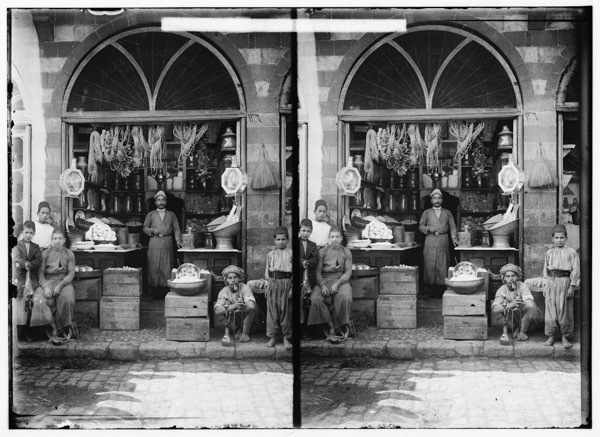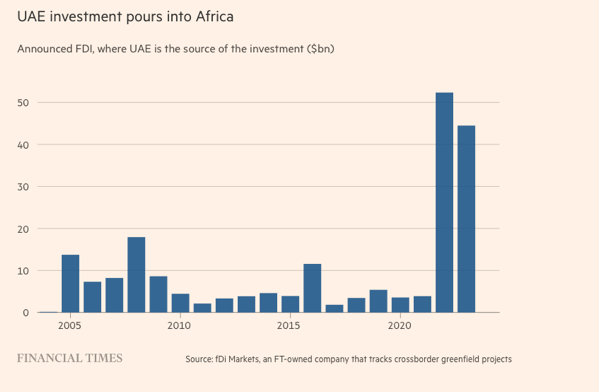Adam Shatz · Israel’s Descent in the London Review Review of Books:
For all their missteps, the students drew attention to matters that seemed to elude their detractors: the obscenity of Israel’s war on Gaza; the complicity of their government in arming Israel and facilitating the slaughter; the hypocrisy of America’s claim to defend human rights and a rules-based international order while giving Israel carte blanche; and the urgent need for a ceasefire. Nor were they cowed by Netanyahu’s grotesque comparison of the protests to anti-Jewish mobilisations in German universities in the 1930s (where no one was holding seders). If Trump wins they will be blamed, along with Arab and Muslim voters who can’t bring themselves to vote for a president who armed Bibi, but they deserve credit for mobilising support for a ceasefire and for helping to shift the narrative on Palestine.
The destruction of Gaza will be as formative for them as the struggles against the Vietnam War, apartheid in South Africa and the Iraq War were for earlier generations. Their image of a child murdered by a genocidal state will not be Anne Frank but Hind Rajab, the six-year-old girl killed by Israeli tank fire as she sat in a car pleading for help, surrounded by the bodies of her murdered relatives. When they chant ‘We are all Palestinians,’ they are moved by the same feeling of solidarity that led students in 1968 to chant ‘Nous sommes tous des juifs allemands’ after the German-Jewish student leader Daniel Cohn-Bendit was expelled from France. These are emotions of which no group of victims can forever remain the privileged beneficiary, not even the descendants of the European Jews who perished in the death camps.
Aid shipments into southern Gaza are being squeezed out by commercial convoys, humanitarian organisations say, at a time when Israel’s military push into Rafah has choked off supply routes critical to feeding hundreds of thousands of people.
Deliveries of food, medicine and other aid into Gaza fell by two-thirds after Israel began its ground operation on 7 May, UN figures show. But overall the number of trucks entering Gaza rose in May compared with April, according to Israeli officials..
Part of the reason for the stark difference in accounts of what supplies reached the strip is a rise in commercial shipments.
Source: Trade convoys ‘squeezing out’ Gaza aid, humanitarian organisations say | Gaza | The Guardian

From Public Domain Review, wonderful collection of pictures from Ottoman-era Palestine.

From The UAE’s rising influence in Africa, in the Financial Times.
Also in the FT: Bulk of gold smuggled from Africa exported to UAE, says report:
In a comprehensive study, Swissaid estimated that about 435 tonnes of gold worth about $31bn were exported undeclared out of Africa in 2022 — a doubling of illicit volumes in a decade to about 40 per cent of the continent’s production, or 12 per cent of global mined supply.The UAE, whose dominant regional trading hub Dubai is known for its gold market, accounted for 93 per cent of undeclared African exports, the NGO’s report said. The next two biggest importers were Switzerland and India.
Here’s the Swissaid report.
AI companies freeze out partisan media | Semafor
Last week, OpenAI announced a five-year deal to license content from News Corp.’s outlets to train AI. It’s the latest in a series of deals with establishment outlets whose politics range from center-left to center-right, including the Associated Press, Politico and Business Insider owner Axel Springer, and the Financial Times.
But while some on the left groused that the News Corp. package includes the right-leaning tabloid New York Post, the true impact of the new marriage of AI and news appears to be the revenge of the establishment media. And fringier, more explicitly ideological outlets on the right have noticed that their businesses – already rocked by an industry-wide decline in web traffic – seem unlikely to get an AI bailout.
The problem is that publishing empires like Axel Springer and News Corp. actually are pretty right-wing and have an overlap with the “fringe” right-wing media that has been growing in recent years (I mean where did people like Tucker Carlson emerge from?) The FT is probably the most left of those cited above and that’s a newspaper for the business elite owned by Nikkei, the voice of the Japanese corporate establishment.
Masters of War, by Thomas Meaney, in Harpers:
The Atlanticist is a special species of Western liberal who sees the world order as an American-led, European-assisted project that requires hard-nosed dealing with the rest of the globe, which must, whether through entreaties or force, hegemony or domination, be kept in its place. For Atlanticists, “credibility” is a word to conjure with. It means staying the course in whatever quagmire they have made—from Vietnam to Afghanistan—the idea being that rival powers will take this as a sign of steadfastness rather than the hubris of an elite that diagnoses its own citizenry’s aversion to wars abroad as a form of populist disease. Though Atlanticism began its life as Anglo-Saxonism—and the U.S.-U.K. relationship remains its kernel—its most pungent variants, and the fervor of the converted, are found in Central and Eastern Europe. The arteries of Atlanticism run across the Continent in the form of NATO academies, John F. Kennedy Avenues, and the Amerikahäuser in German cities, where you can check out a biography of Davy Crockett or The Great Depression for Dummies and gaze on the walls at posters of national parks. The Munich Conference itself is only one among a galaxy of Atlanticist institutions—the German Marshall Fund, the Federal Academy for Security Policy, the Atlantic Council, the Atlantic Initiative, the Deutsche Atlantische Gesellschaft, the Atlantic Brücke—all of which tug hard to forestall the expiry date of a worldview that has seen better days.
Sam Roberts, writing for NYT: Terry Anderson, Reporter Held Hostage for Six Years, Dies at 76
Gideon Levy in Haaretz:
Now is the time for the United States, and in its wake the international community, to make a decision: Will the endless cycle of violence between Israel and the Palestinians continue, or are we going to try to put a stop to it? Will the United States continue to arm Israel and then bemoan the excessive use of these armaments, or is it finally prepared to take real steps, for the first time in its history, to change reality? And above all, will the cruelest Israeli attack on Gaza become the most pointless of all, or will the opportunity that came in its aftermath not be missed, for a change?
Source: The World Must Force Peace on Israel - Opinion - Haaretz.com
How China is tearing down Islam This is a remarkable investigation by the FT on how China is tearing down mosques or altering them by removing domes and minarets and replacing them with pagodas and other Han Chinese symbols.
Is the Middle East’s Makeover a Mirage? | Foreign Affairs Joost Hiltermann.
Sharif Hussein and the campaign for a modern Arab empire | Aeon Essays
Sharif Hussein and the campaign for a modern Arab empire | Aeon Essays:
The importance of Hussein and his Arab Kingdom for today is a forgotten experiment with state-formation exactly 100 years ago. Modern states do not originate only from nationalism. Abdullah II’s remarks at the Jordan River evoke Islam as a principle of government and Muslim rulers as protectors of Christians. This use of Islam is very different from what we usually hear about religion in the Middle East – for instance, ‘sectarianism’ (religion-based claims to institutionalised representation within nation states, often erupting in violence) or the fascist brutality of ISIS. But neither should we follow the king of Jordan into a monarchist-nationalist nostalgia. His great-great-grandfather Hussein was not born a nationalist. Here, I tell Hussein’s story as an exercise in unearthing ideas about Muslim government that we can call ‘imperial’. This is important because the imperial techniques of state-making defined the early 20th century in many regions of the world, and not nationalist or egalitarian revolutions.
The à la carte world: our new geopolitical order | Financial Times
The à la carte world: our new geopolitical order | Financial Times:
Welcome to the à la carte world. As the post-cold war age of America as a sole superpower fades, the old era when countries had to choose from a prix fixe menu of alliances is shifting into a more fluid order. The stand-off between Washington and Beijing, and the west’s effective abandonment of its three-decade dream that the gospel of free markets would lead to a more liberal version of the Chinese Communist party, are presenting an opportunity for much of the world: not just to be wooed but also to play one off against the other — and many are doing this with alacrity and increasing skill.
Egypt's Zambian gold scandal
Hossam over at 3arabawy (recently reborn as a Substack newsletter - do subscribe) has been providing some coverage of what he calls
Goldgate, the bizarre story about a number of Egyptian current or former military and intelligence officers who were recently arrested in Lusaka, Zambia, with a cargo of fake gold bars. The story was revealed by Zambian media and has been banned in Egypt, with authorities arresting (and subsequently releasing) a journalist at the factchecking website Matsda2sh, as Mada Masr reports. Here’s Hossam on Zambian TV giving an overview of the story:
More on this at NYT, Al Jazeera, and al-Monitor.
Alex de Waal · The Revolution No One Wanted: War in Khartoum · LRB 18 May 2023:
Sudan’s capital, Khartoum, is being destroyed in a fight to the death between two venal, brutal generals. This is a war of choice; allowing it to happen was a failure of international diplomacy. But if we look at the city’s 200-year history, the fighting shouldn’t be a surprise. Khartoum was founded on a command post built for the purposes of imperial robbery – and every subsequent regime has continued this practice. In ordinary circumstances, Sudan is run by a cabal of merchants and generals who plunder the darker-skinned people of the marchlands and bring their wealth to Khartoum, a relatively opulent city and a haven of calm. But the logic of kleptocracy is inexorable: when the cartel is bankrupt, the mobsters shoot it out. We saw this in Liberia and Somalia thirty years ago. The ransack of the Sudanese state today is ten times bigger.
The New World Disorder (Robert Wright & Thomas Friedman) - Even Tom Friedman describes what is going in Israel/Palestine as “the one state reality”.